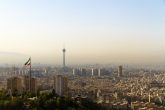March 01, 2018
Whatever Happened to Trump's Counterterrorism Strategy?
Last May, reports surfaced that the Trump administration had drafted a new counterterrorism strategy that would be released to the public. Although the strategy’s publication was expected this winter, it is now unclear whether the document will ever be made public and, if so, when. This is despite Donald Trump’s noisy rhetoric about terrorist threats and the pace of U.S. counterterrorism operations, which have intensified since he took office. The American people, and especially the men and women responsible for executing these operations, deserve to know any administration’s strategy for combating terrorism, and especially this administration’s, given all of its noise about the issue. It’s particularly urgent because, by all outward appearances, President Trump’s approach to counterterrorism has been frustratingly Janus-faced.
One face is what you could call actual counterterrorism. This category includes the day-to-day grind of civil servants, diplomats, the military, and other dedicated professionals. These public servants continue working to shrink the Islamic State’s territorial safe haven through ongoing counterterrorism operations in Iraq and Syria, degrade al-Qaeda around the world, interdict terrorist operations, obtain convictions and lengthy sentences for those who commit terrorist acts on U.S. soil, and conduct a wide range of other counterterrorism activities worldwide. Under Trump, the conduct of actual counterterrorism appears largely consistent with that of Barack Obama’s two terms and George W. Bush’s second term. Those common elements include working with partners wherever possible, beefing up intelligence cooperation, relying on distinctive U.S. capabilities, including armed drones, and utilizing the criminal justice system to prosecute those arrested in the United States on suspicion of terrorist activities. These operations, no matter how well executed, will fail to achieve strategic effects if they are not guided by an overarching strategy.
Read the full article in The Atlantic.
More from CNAS
-
“The Ayatollah Has No Clothes” – with Rich Goldberg and Richard Fontaine
Richard Fontaine is CEO of the Center for American Security, joins Call Me Back to assess the threat FROM Iran and the threat TO Iran. Listen to the full episode on Call Me ...
By Richard Fontaine
-
What Does Yahya Sinwar’s Death Mean for the War in Gaza?
Jonathan Lord, Senior Fellow and Director of the Middle East Security program, joins RN Drive to discuss the death of Sinwar who has long been viewed as one of the militant gr...
By Jonathan Lord
-
Russia in the Middle East with Jonathan Lord and Hanna Notte
One year after the October 7 attacks by Hamas, the crisis in the Middle East has grown more and more complex. With the region teetering on the brink of broader conflict, the B...
By Jonathan Lord, Hanna Notte, Andrea Kendall-Taylor & Jim Townsend
-
A Year of Anguish for the Hostages in Gaza—and Their Families
October 7 gave rise to unexpected bipartisan coalitions of D.C. experts and legislators who lent their knowledge to help U.S. hostage families and victims of the conflict navi...
By Daniel Silverberg




